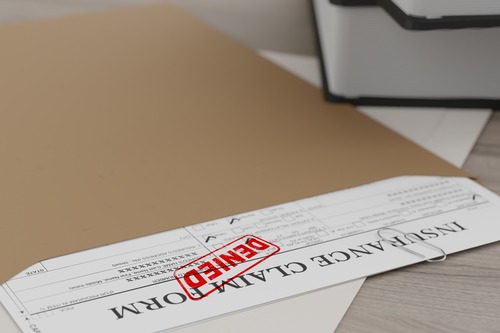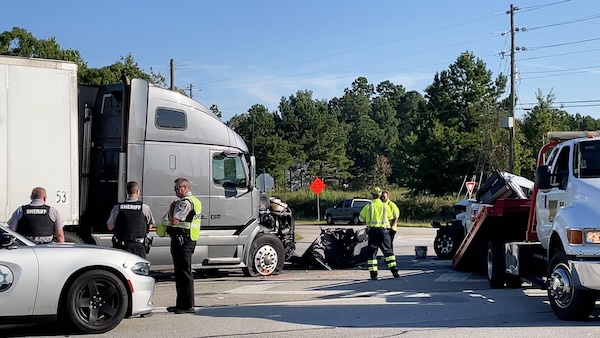Dealing with the aftermath of a car accident and navigating the complexities of auto insurance is already stressful, but when the at-fault insurance company denies your claim, it can feel like an uphill battle. Insurance companies are known to protect their bottom line, sometimes leaving victims to shoulder the burden of medical expenses, property damage, and lost wages. Whether it’s a dispute over liability, insufficient coverage, or a technicality in your policy, a claim denial can be overwhelming and frustrating.
In this blog, we’ll guide you through the reasons why an at-fault insurance company might deny your car accident claim, the steps you can take to challenge the denial, and the legal options available to you, including working with an experienced Atlanta car accident attorney to ensure your rights are protected and you receive the compensation you deserve.
Reasons Why The At-Fault Insurance Company Denies Your Claim
When the at-fault insurance company denies your car accident claim, it is crucial to understand the specific reasons behind the denial, which often relate to the terms of your auto insurance policy. Knowing these reasons can help you address the issues and strengthen your case. Here are some common factors that may lead to a claim denial:
Insufficient Evidence to Establish Liability and Damages
Insurance companies often deny claims due to a lack of evidence that clearly shows the other party’s fault. An insurance adjuster is responsible for evaluating the details of the accident and the evidence provided to determine liability and damages. This may include missing police reports, inadequate documentation of damages, or failure to provide medical records. Gathering strong evidence is essential to support your claim.
Policy Exclusions Affecting Coverage
Every insurance policy has exclusions. These are specific situations or damages that the policy does not cover. If your claim falls under one of these exclusions, the at-fault insurance company may deny it. Review your policy to understand what is covered and what is not.
Delays in Reporting the Accident
Timeliness is important in the claims process. If you delay reporting the accident to the at-fault insurance company, they may deny your claim. Most policies require prompt notification of any incidents. Make sure to report accidents as soon as possible.
Disputed Liability Claims by the Insurance Company
Sometimes, the car insurance company may dispute who is at fault for the accident. If they believe you share a significant portion of the blame, they may deny your claim or offer a lower settlement. Understanding Georgia’s comparative negligence laws can help you navigate this issue.
Pre-existing Conditions Impacting Injury Claims
If you have a pre-existing condition that the at-fault insurance company believes contributed to your injuries, they may deny your claim. They may argue that your injuries were not solely due to the accident. It’s important to provide medical records that clearly detail how the accident affected your health.
Concerns Over Potential Fraud or Misrepresentation
Insurance companies take fraud seriously. If they suspect any misrepresentation in your claim, they may deny it outright. Be honest and transparent when providing information about the accident and your injuries to avoid this issue.
Steps to Take After a Claim Denial
If the at-fault insurance company denies your car accident claim, it is essential to take specific steps to address the situation and navigate the complexities of a denied car insurance claim. Here’s what you should do:
- Review the Denial Letter Carefully: Start by reading the denial letter thoroughly. This document outlines the reasons for the claim denial. Understanding these reasons will help you formulate a response. Look for specific language regarding liability, policy exclusions, or evidence needed to support your claim.
- Gather Additional Evidence: Collect any evidence that can strengthen your case. This may include:
- Witness Statements: Reach out to individuals who saw the accident and ask them to provide statements. Their accounts can support your version of events.
- Expert Testimonies: Consider getting opinions from experts, such as accident reconstruction specialists, to establish liability.
- Medical Records: Ensure you have all relevant medical records that document your injuries and treatment. This evidence can help demonstrate the extent of your damages.
- Consult with an Experienced Car Accident Attorney: Engaging a knowledgeable attorney can be crucial. They can review your case, advise you on the best course of action, and help you understand your rights. An attorney can also assist in gathering evidence and negotiating with the insurance company on your behalf.
Appeals and Complaint Processes
When the at-fault insurance company denies your claim, it’s crucial to understand the appeals and complaint processes available to you to challenge the car insurance claim denial. These steps can help you challenge the denial and seek the compensation you deserve.
Navigate the Internal Appeals Process
Most insurance companies have an internal appeals process. After receiving your denial letter, you can formally appeal the decision. Follow these steps:
- Review the Denial Letter: Understand the reasons for the denial. This will guide your appeal.
- Prepare Your Appeal: Gather supporting documents that counter the denial reasons. This may include police reports, medical records, and photographs from the accident scene.
- Submit Your Appeal: Send your appeal letter and supporting documents to the insurance company. Ensure you keep copies for your records.
File a Complaint with the Georgia Insurance Commission
If the internal appeal does not resolve the issue, you can file a complaint with the Georgia Insurance Commission, which oversees car insurance companies. Here’s how:
- Gather Information: Collect all relevant documents, including your policy, denial letter, and any correspondence with the insurance company.
- Complete the Complaint Form: Visit the Georgia Insurance Commission’s website to find the complaint form. Fill it out accurately and provide all requested information.
- Submit Your Complaint: Send your completed form and supporting documents to the Commission. They will investigate your complaint and may contact the insurance company for clarification.
Recognize Unfair Business Practices Under Georgia Law
Georgia law protects consumers from unfair business practices by insurance companies, including unjust claim denials. If you believe the denial is unjust, consider the following:
- Document Everything: Keep a detailed record of all communications with the insurance company, including dates, times, and the names of representatives you spoke with.
- Consult an Attorney: An experienced car accident attorney can help you identify unfair practices and advise you on your legal options.
Legal Options
When the at-fault insurance company denies your claim, you have several legal options to consider to address the denied car accident claim. Each option can help you pursue the compensation you deserve for your injuries and damages.
Engage in Negotiation and Mediation
Negotiation is often the first step after a claim denial in car accident claims. You can work directly with the insurance company to resolve the issue. Present any new evidence you have gathered, such as witness statements or medical records. A skilled car accident attorney can assist you in this process, ensuring your case is presented clearly and effectively.
Mediation is another option. This involves a neutral third party who helps both sides reach an agreement. Mediation can be a quicker and less expensive alternative to litigation. It allows both parties to discuss their concerns and negotiate a potential settlement.
Consider Filing a Lawsuit
If negotiation and mediation do not lead to a satisfactory resolution, car accident victims may consider filing a lawsuit. This step is often necessary when the insurance company engages in bad faith or unfair business practices. Bad faith can include denying a valid claim without a reasonable basis or failing to investigate the claim properly.
Before filing a lawsuit, consult with an experienced car accident attorney. They can assess your case, determine the best course of action, and guide you through the legal process. Remember, there are deadlines for filing a lawsuit, known as the statute of limitations, so act promptly.
Seek Guidance From an Experienced Car Accident Lawyer ASAP!
If your car accident claim has been denied, don’t face the at-fault insurance company alone. Our experienced team at Ross Moore Law is here to help. We understand the complexities of insurance disputes and are dedicated to fighting for the compensation you deserve.
Contact us at 404-445-8122 for a free case consultation today!





